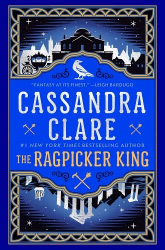At first thought, one might not conceive of comfort food as something that requires a cookbook. The very essence of comfort food — its ability to evoke a sense of home and ease — doesn’t seem to demand a recipe, nor does it usually come with an elaborate grocery list. Oftentimes the recipes we most associate with comfort are those that have been passed down to us by family members. So, you might wonder: why seek out Ottolenghi Comfort, the latest cookbook by Yotam Ottolenghi and his talented team of collaborators?
While you might not find an exact match for your grandmother’s noodle kugel, what Comfort offers is something equally valuable: a sensitive, globe-spanning collection of recipes sure to warm your belly and soul. These dishes are the authors’ own personal favorites, but they also tap into universal feelings of warmth and nostalgia.
Yotam Ottolenghi, Helen Goh, Verena Lochmuller, and Tara Wigley invite readers to welcome new comfort foods into their kitchens. In their view, comfort food is both nostalgic and novel. Their cookbook exists in that sweet spot, offering some recipes that will be familiar to Jewish American readers, like matzo ball soup, bourekas, and eggplant-baked pasta, and others that may be less familiar, such as a lemongrass-and-tuna galangal curry — an exciting take on canned tuna, inspired by a recipe passed down from the mother of one of Helen Goh’s Indonesian coworkers.
What makes the book so compelling is its celebration of the diverse array of recipes that come to people’s minds when they hear “comfort food.” Some recipes, like Lochmuller’s distinctly Scottish cheese-and-onion butteries (think: laminated dough with a burnished cheddar crust), come from childhood memories of family camping trips. Others are drawn from more recent experiences: a dish tasted at a friend’s New Year’s party, for example, or a hummus imbued with the flavors of Southern France, developed while one of the authors lived there. Comfort encourages us to expand our culinary horizons and embrace flavors that could become just as cherished as those we grew up with.
At its heart, this is a book about migration, identity, culture, and the stories that shape our relationships with food. These themes will resonate deeply with Jewish readers. Ottolenghi Comfort, then, is not just a collection of recipes, but a touching, intimate exploration of the ways in which food connects us to our histories and one another.
Hannah Kressel is a current fellow at the Pardes Institute of Jewish Studies in Jerusalem. She holds a Masters in Art History from the University of Oxford and a Bachelors in Art History and Studio Art from Brandeis University. Her research examines the intersection of contemporary art, food, and religion. She is an avid baker and cook.





